Weird of Oz on the Art of Rating 3 (of 3)
“Excellent, Dude! This movie was totally triumphant!… Not since the McKenzie Brothers or the Frog Brothers has a group come along as wild as these Wyld Stallyns…”
So I wrote 24 years ago in my review of Bill and Ted’s Excellent Adventure. Dude, I totally didn’t talk like that — for those who never saw the movie, I was riffing on the way the characters speak.
Looking back over the review now, I notice that I list the then-unknown actor who played Ted as “Keavy Reeves.” We didn’t have the Internet Movie Database — or the Internet — back then; my guess is I misread the notes I jotted down in the theater.
I also notice it was a decent review that gave readers of the high school newspaper a good grasp of what the film was all about, albeit a bit adverb-heavy: “As one can probably tell this movie had great potential to be utterly stupid. It is on that fine line between being fantastically dumb and riotously hilarious, but it succeeds in being the latter. . . . It is an incredibly funny movie and I declare it excellent.”
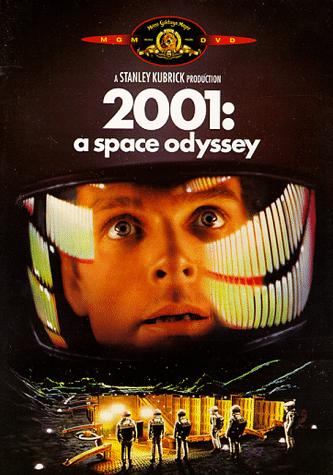 So the review holds up okay. Question is, does the movie? I confess I haven’t watched it in years, but I have seen it several times, and my memories of it are fond ones (it was filmed in the places where I hung out in high school, so it is a trip down memory lane in more ways than one).
So the review holds up okay. Question is, does the movie? I confess I haven’t watched it in years, but I have seen it several times, and my memories of it are fond ones (it was filmed in the places where I hung out in high school, so it is a trip down memory lane in more ways than one).
When I declared Bill and Ted’s to be “excellent,” was I (aside from playing on the characters’ vernacular) putting it in the same category as 2001: A Space Odyssey? Bill and Ted’s is nominally a science-fiction (time travel) film. Of course, it is primarily a comedy, so was I elevating it to the ranks of Some Like It Hot, Duck Soup, and Dr. Strangelove? (If you haven’t guessed, the answer is Hell no.) This leaves one big question, which brings us to the final topic I wish to consider in this series on the art of rating: When we rate a film (or a book or a television show etc.), what are we rating it against?
IV The Absolutist versus the Relativist
There are two very different approaches or frameworks for passing judgment on a piece of popular entertainment.
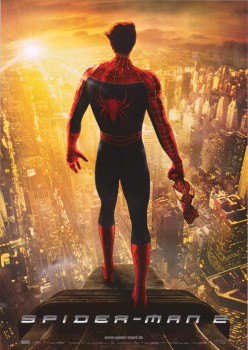 On the one hand, you have critics who regard certain books or films as paragons against which other books or films are measured. Gene Siskel often seemed to represent this approach. Measured against the masterpieces of cinema, how could you give a high rating to Bill and Ted’s Excellent Adventure?
On the one hand, you have critics who regard certain books or films as paragons against which other books or films are measured. Gene Siskel often seemed to represent this approach. Measured against the masterpieces of cinema, how could you give a high rating to Bill and Ted’s Excellent Adventure?
Roger Ebert, on the other hand, usually showed the more rational (and less snooty) way. To rate a film like Bill and Ted’s Bogus Journey (the sequel, which Ebert enjoyed and gave a good review — he admitted he hadn’t seen the first film) on the same scale as Lawrence of Arabia or Casablanca is comparing apples and oranges — and faintly ludicrous, an obsessive-compulsive sort of lunacy that is not the most helpful application of one’s higher education, at least not for a general audience.
Rather than judging a new movie up against every other great film ever produced, Ebert judged it within the context of its own genre, always weighing the question: How well did the filmmakers realize their vision, either fulfilling or deliberately upending that genre’s conventions and audience expectations?
By the lights of what the makers of the Bill and Ted movies intended to achieve, they are successes: amusing romps, fluffy (though at times quite clever) pieces of cheeky fun that parody time-travel tropes and conventions, cracking jokes that manage to be witty while remaining accessible enough for most high school students to get. Ebert did not measure these films against the work of Stanley Kubrick, because only a very narrow person would do such a thing and Ebert was far broader than that (no pun intended).
This issue was memorably raised again by horror icon Stephen King in a 2007 EW editorial. King seems to side with the absolutist camp in asking, “I mean, look here — is Spider-Man 2 really a four-star movie?” King elaborates:
“I love Sam Raimi’s work and feel the same way about Michael Chabon’s (Chabon had a hand in creating 2’s screen story), but I wince at the idea of putting this movie in the same critical category as The Godfather and Unforgiven.”
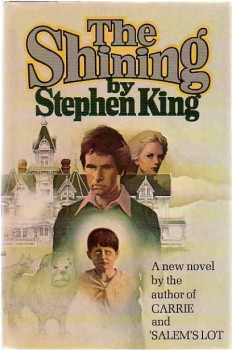 King is here, I think, falling into the absolutist trap. Most of the critics who lavished praise on Spider-Man 2 were not comparing it to The Godfather or Unforgiven. That would be as silly as comparing The Shining to Ulysses or The Great Gatsby.
King is here, I think, falling into the absolutist trap. Most of the critics who lavished praise on Spider-Man 2 were not comparing it to The Godfather or Unforgiven. That would be as silly as comparing The Shining to Ulysses or The Great Gatsby.
In all fairness, King explained that he enjoyed a popcorn flick as much as the next guy, and indeed enjoyed Spider-Man 2 as mindless summer entertainment; he just didn’t think it rated alongside the aforementioned revered classics. In assigning it four stars, he argued, critics were watering down or diluting the weight of a top rating (a valid point that I addressed in part 1 under the section The Stingy Critic versus the Generous Critic).
Ebert had already provided an answer to King’s criticism three years before King raised it, in a 2004 review (of Shaolin Soccer). As Ebert succinctly explained,
“ . . . the star rating system is relative, not absolute. When you ask a friend if Hellboy is any good, you’re not asking if it’s any good compared to Mystic River, you’re asking if it’s any good compared to The Punisher. And my answer would be, on a scale of one to four, if Superman (1978) is four, then Hellboy is three and The Punisher is two.”
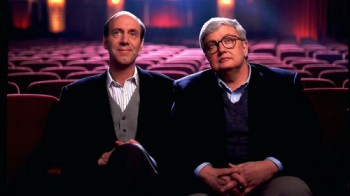 In fact, Ebert was one of those critics who drew King’s ire by lavishing a top recommendation on Spider-Man 2, but Ebert was completely consistent in doing so because, as he articulated in his review, he felt that it was one of the most perfectly realized adaptations of a superhero comic, one of the best superhero movies he’d seen. He never claimed it was one of the best films he’d ever seen, but judging against all the other superhero films, if he thought it swung ahead to the front of the pack on its CGI webs, then it makes perfect sense that he would rate it accordingly.
In fact, Ebert was one of those critics who drew King’s ire by lavishing a top recommendation on Spider-Man 2, but Ebert was completely consistent in doing so because, as he articulated in his review, he felt that it was one of the most perfectly realized adaptations of a superhero comic, one of the best superhero movies he’d seen. He never claimed it was one of the best films he’d ever seen, but judging against all the other superhero films, if he thought it swung ahead to the front of the pack on its CGI webs, then it makes perfect sense that he would rate it accordingly.
I think it fitting to give the final word to Ebert. The balcony is now closed.
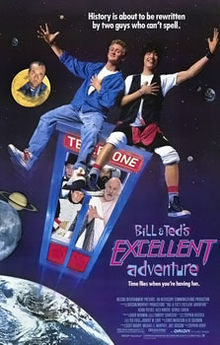
One potential solution, not dissimilar to Ebert’s, is to rate a piece of work on the basis of what the work in question was trying to achieve. If BILL & TED was trying to be loopy and amusing, and not much else, then it can be praised, and justly so. The more ambitious the piece, be it a movie, a sculpture, or a novel (or, for that matter, a real-life space launch), the more critical tools ought to be brought into play, and the higher the standards.
Mark: My sentiments exactly. I like the analogy suggested by “a real-life space launch”: if you give four stars to a successful block party, you are not suggesting it was an achievement equal to a successful space launch!
And “the more ambitious the piece…the more critical tools ought to be brought into play, and the higher the standards” is key, too. A failed work by an auteur (like a Kubrick or a Scorsese) is likely going to have more art and depth than a “successful” work produced by Roger Corman, but they are being judged differently, and rightly so.
A quick shout-out to Melissa’s Graphic Novel class in Minneapolis! She informed me that you used the earlier installments in this series as references for your final assignment. (They get to review a graphic novel of their choice — what a cool class!)
One thing that makes Bill and Ted excellent is that its makers lavished far more care on its details than they had to. Socrates speaks such correct, even graceful, Ancient Greek in this film, so much in alignment with what current scholarship suggests the real pronunciation would probably have been, that the Classics department at my alma mater always closed the school year with a showing of it.
Sarah: “…the Classics department at my alma mater always closed the school year with a showing of it.” What an awesome department!